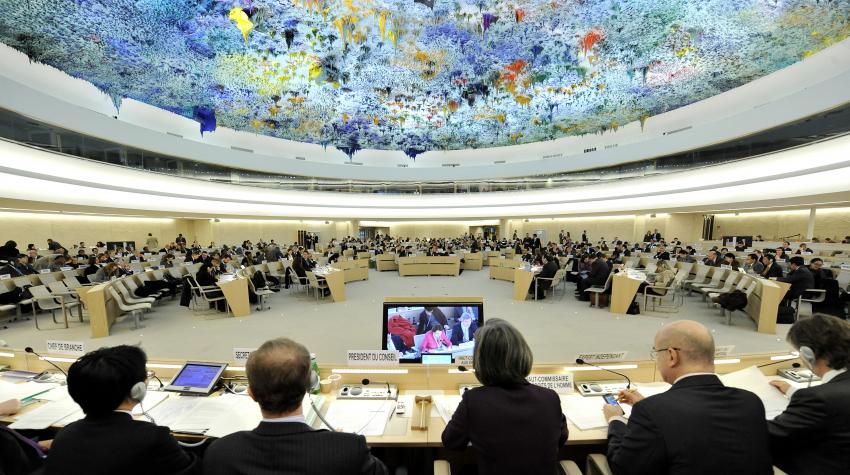FoBI’s contribution
As part of this process, the Norwegian Helsinki Committee’s Freedom of Belief Initiative (FoBI) contributed actively to Türkiye’s fourth UPR cycle. FoBI joined the national civil society coordination group for Türkiye’s UPR, led by the Joint Human Rights Platform and the Association for Monitoring Equal Rights.
FoBI co-authored two joint stakeholder submissions on:
- the right to education, raising concerns about freedom of religion or belief in education;
- non-discrimination, highlighting instances of discrimination on the grounds of religion or belief.
Additionally, FoBI submitted an individual report focused on freedom of religion or belief in Türkiye.
Key themes and recommendations in the current cycle
Serious human rights challenges have been faced in Türkiye, including the erosion of the rule of law, shrinking civic space, restrictions on freedom of expression, gender-based violence, and discrimination against LGBTIQ+ and minority communities. These concerns were echoed by numerous UN Member States during the review, who issued targeted recommendations across these and other key areas. During the session, Türkiye received more than 320 recommendations from 125 states.
Shrinking civic space and restrictions on fundamental freedoms: Various states raised concerns about restrictions on freedoms of expression, association, and peaceful assembly. Several called for the repeal or reform of vague and overly broad counter-terrorism and disinformation laws that are used to suppress dissenting voices.
Judicial independence and rule of law: A large number of states urged Türkiye to guarantee the independence of the judiciary, restructure the Council of Judges and Prosecutors, and ensure the implementation of the ECtHR judgments. Concerns about arbitrary detentions and extended pre-trial detention were also raised.
Gender equality and violence against women: Calls for Türkiye to rejoin the Istanbul Convention featured prominently. States also urged Türkiye to explicitly criminalise domestic violence and femicide, enhance shelter capacity, and ensure full implementation of protective laws.
Protection of LGBTIQ+ rights: Multiple states recommended Türkiye include sexual orientation and gender identity in anti-discrimination and hate crime laws and take action to prevent hate speech and violence against LGBTIQ+. Attention was drawn to restrictions on LGBTIQ+ gatherings and the increasingly negative public discourse surrounding the community.
Freedom of religion or belief and minority rights: Türkiye was urged to respect the rights of religious minorities, reopen the Halki Seminary, and grant legal status to religious communities. Several states highlighted the need for legislative changes and combatting all forms of discrimination or violence against minority groups.
Treaty ratification and human rights institutions: Türkiye was called on to ratify several core human rights treaties, including the International Convention for the Protection of All Persons from Enforced Disappearance and the Rome Statute of the International Criminal Court. Many recommendations also urged Türkiye to ensure the independence and effectiveness of TİHEK, aligning it with the Paris Principles.
Next steps
Türkiye is expected to respond to the recommendations before the 60th session of the Human Rights Council. The degree to which Türkiye acts on these recommendations will be closely monitored by both the international community and national civil society.
Mirroring long-standing concerns
Many of the concerns raised in this review had already been flagged in Türkiye’s previous UPR cycle in 2020. However, implementation of the recommendations given then has been significantly limited. According to a joint civil society submission of the 216 recommendations supported by Türkiye in the last cycle:
- only 6 were fully implemented,
- 118 were partially implemented,
- 89 were not implemented at all,
- and 3 were considered immeasurable.
About UPR: The UPR is a peer-review mechanism where the human rights record of each UN Member State is examined every four and a half years. The process is based on three documents: a national report submitted by the State, a compilation of UN expert and treaty body observations, and submissions by civil society organisations, national human rights institutions, and other stakeholders. The UPR process is especially important in contexts where civic space is under pressure and avenues for dialogue are limited.
The full session can be watched on UN Web TV.
Contact us
Employee
Funda Tekin
Employee
